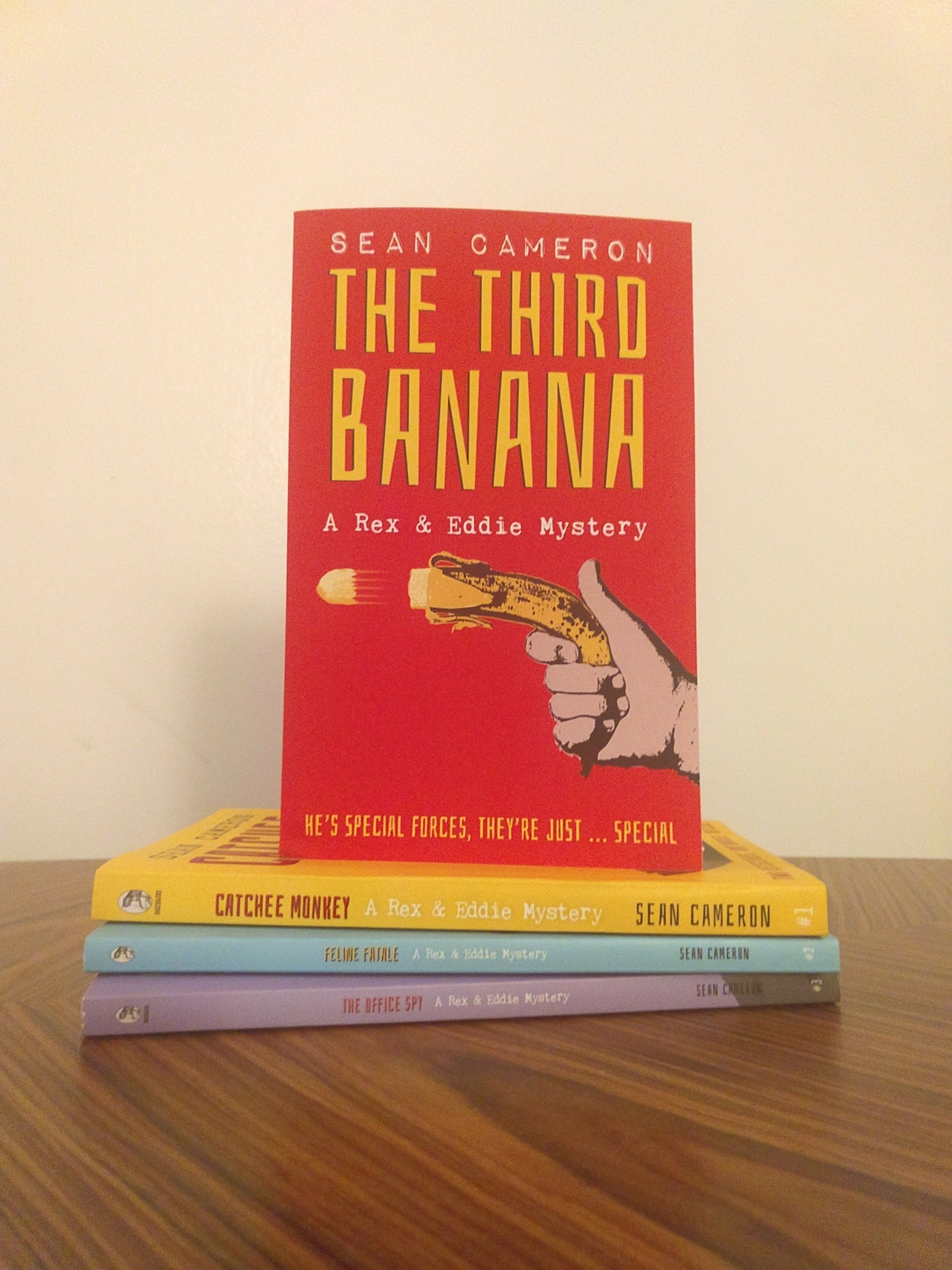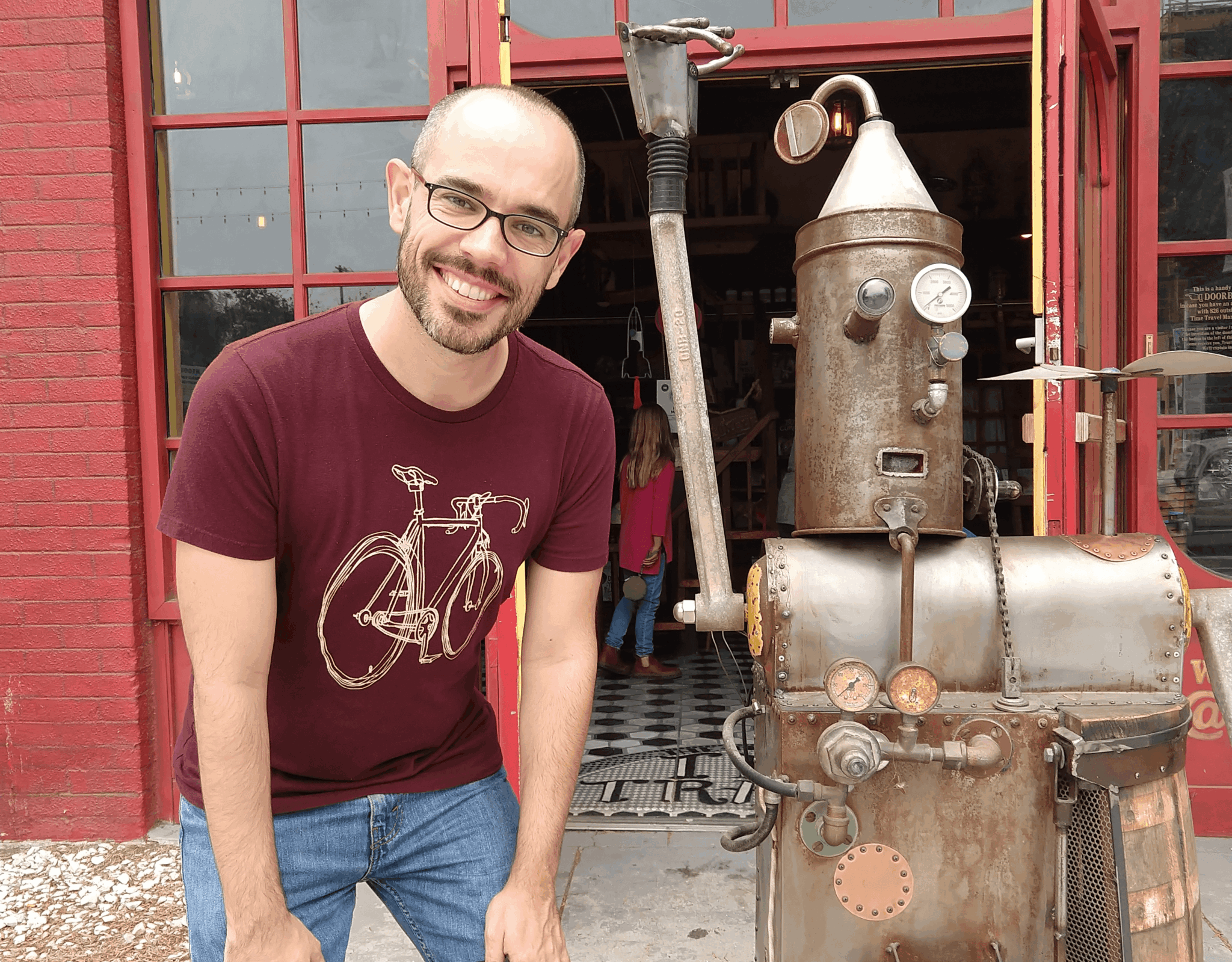We’re excited to introduce you to the always interesting and insightful Sean Cameron. We hope you’ll enjoy our conversation with Sean below.
Sean, thanks for taking the time to share your stories with us today The first dollar you earn is always exciting – it’s like the start of a new chapter and so we’d love to hear about the first time you sold or generated revenue from your creative work?
When I was 18, my local TV station, Meridian, had this bizarre little 5:30am slot called Screencast for amateur films. I borrowed gear from my college, roped my cousin into acting, and made a 2-minute spaghetti western about a man haunted by a traffic cone. I did the voiceover in my best Clint Eastwood. I posted the VHS for submission and a few months later, I got a £50 contract for 12 airings. I wasn’t even able to watch it as I was off at university taking a History of Art exam, which I failed. At the time it felt like my career high and low were both on the same day.

Sean, before we move on to more of these sorts of questions, can you take some time to bring our readers up to speed on you and what you do?
I’m a British writer living in Los Angeles, though most of what I write is still very much rooted in home. I actually started out wanting to be a filmmaker—I made about 40 short films in my teens and early twenties. When YouTube launched, I jumped on it early and created a comedy web series called Rex & Eddie, which followed two bickering friends on a nightly stakeout, all set inside a parked car. It was part sitcom, part experiment, and it helped me land professional TV work making short-form videos as I’d learned how to do everything from shooting to editing to producing.
I’ve always been drawn to new formats and tools. That’s why I tried out YouTube before most people knew what it was, and later, when Kindles and self-publishing took off, I saw another opportunity. By that point, I’d moved to the U.S., and I realized just how British my writing voice really was. I still wanted to tell stories about home, so I dusted off Rex & Eddie, reimagined these bumbling detectives in full-length comedy-mystery novels. Without a film budget to worry about, suddenly I could have car chases and elaborate locations all through prose.
I write the Rex & Eddie Mysteries, a series of comedic detective novels featuring two lifelong friends who stumble into crime-solving. They’re not exactly pros, just stubborn, well-meaning, and wildly underqualified. The books combine mystery, comedy, and action, but at the heart of every story is their friendship. Think Hot Fuzz meets Only Murders in the Building, but in an English town and with a lot more tea.
I try to tell mysteries that feel fast, funny, and character-driven. Dialogue is my favourite tool, quick back-and-forths, silly tangents, and emotionally revealing arguments that don’t feel like exposition. I like it when a reader forgets they’re being “told” something and gets pulled into the moment.
Each book is structured like a Rube Goldberg machine—plot threads, character arcs, and clues all line up for a final action sequence that feels chaotic and inevitable. The mysteries are twisty and satisfying, but they also force Rex and Eddie to grow, even if they’re kicking and screaming the whole way. And because detective fiction is such a flexible genre, I can drop them into any world I want, there’s always a mystery to solve, and always a chance to mess things up on the way.
I’m proud that I’ve built something from the ground up—first as a scrappy web series, and now as a growing book series with a loyal readership. The feedback that means the most is when someone says the books made them laugh out loud in public, or how a fellow expat enjoyed the nostalgia of home. That’s the real reward for me.
If you’re new to my work, I’d say this: the books are light-hearted but layered. They’re fun, fast reads with big heart, grounded in friendship and full of mayhem. I write to entertain but also to say something real with an emotional journey. If that sounds like your cup of tea, come along for the ride.

Is there mission driving your creative journey?
Absolutely. Rex & Eddie is, in many ways, my way of unpacking masculinity. How it’s portrayed, how it’s performed, and how it can evolve. I wasn’t a “typical lad” growing up. I didn’t care much for football; I used to joke that my best position was as the goalpost because my best mate Simon was the goalie and I liked chatting with him. I didn’t know how to fight, either. What I did have was humour, and I learned how to defuse situations by being quick with words instead.
Growing up, I didn’t see many role models in media that reflected that. Men were either hyper-competent action heroes or effortlessly smooth talkers. There wasn’t much space for someone scared, flawed, or unsure unless they were the punchline.
With Rex & Eddie, I wanted to write a story that has action and stakes and all the genre fun, but with characters who are scared and say so. They mess up and they try again. Their superpower is stubbornness. They don’t give up, even when they probably should.
They’re not perfect. They say the wrong thing, they panic, they let each other down—but they grow. Not just as detectives, but as people. They learn from others, confront their own small-mindedness sometimes, and come out the other side just a little better.
I wish there were more stories like that—where men are allowed to be vulnerable, to fail, and to become more human, not less, because of it. That’s what drives me to keep telling their story.

Learning and unlearning are both critical parts of growth – can you share a story of a time when you had to unlearn a lesson?
One big lesson I had to unlearn was treating story structure like a rule book. Early on, I obsessed over structure—acts, beats, plot points—trying to crack the code of what made a satisfying story. And to be fair, it is important. But over time, I realised that if you stick too tightly to the blueprint, you risk choking the life out of the story.
What I had to learn instead was why structure works—what it’s actually doing for the audience—so I could start bending it without breaking the story. With novels especially, there’s more room to follow the characters where they naturally want to go. Unlike screenwriting or short-form formats, no page limit or runtime is breathing down your neck. The only real rule is: don’t be boring. Make sure every scene earns its place and delivers something emotionally, comedically, or narratively rewarding. That’s what I aim for now.
Contact Info:
- Website: https://www.sean-cameron.com
- Instagram: https://www.instagram.com/seancameronuk/
- Facebook: https://www.facebook.com/seancameronauthor


Image Credits
Emily Anderson, Marsha Swallow


